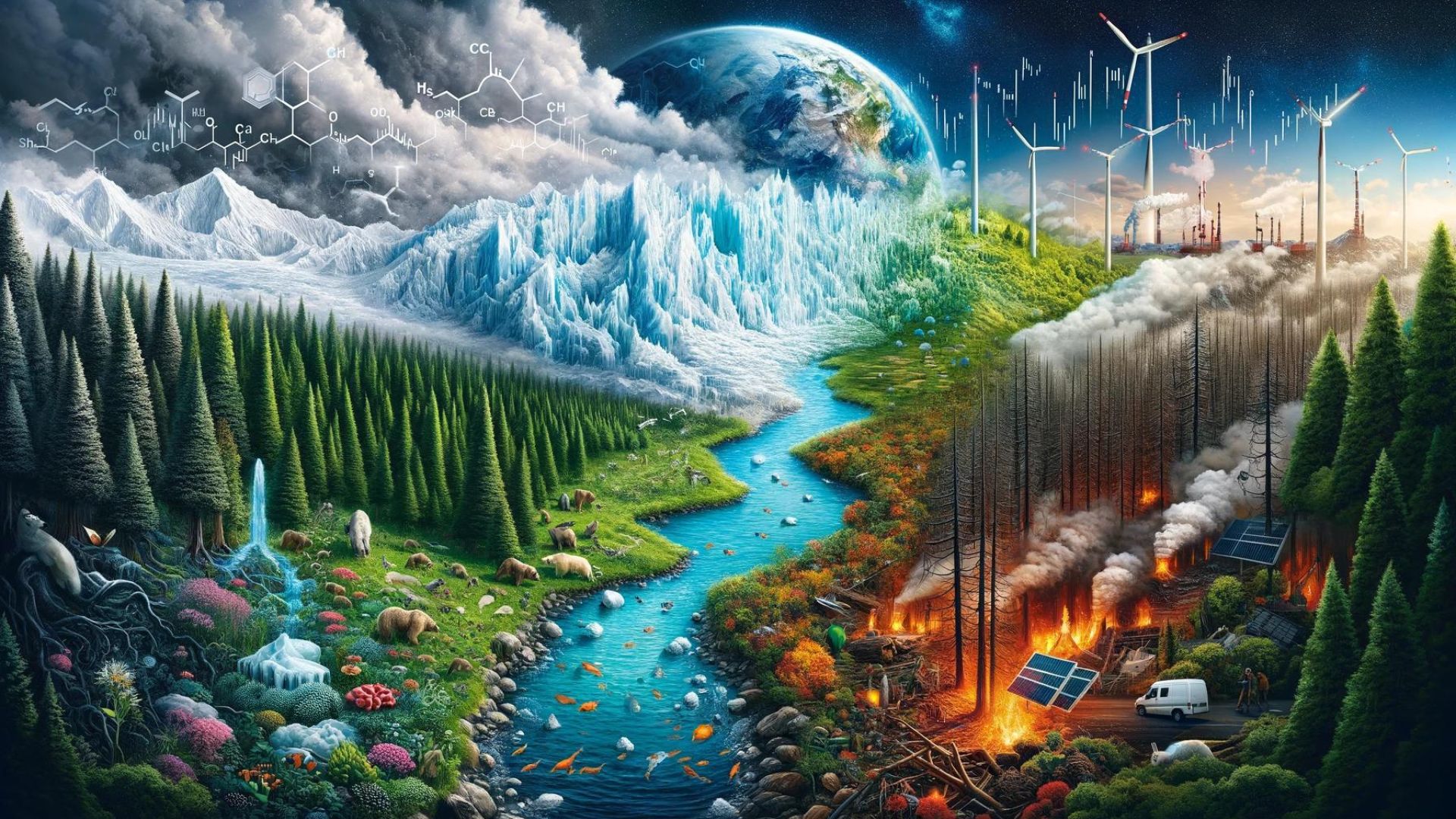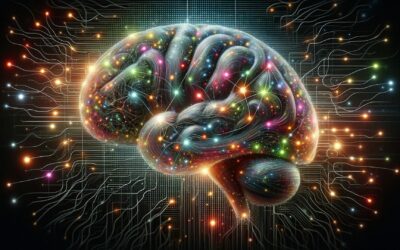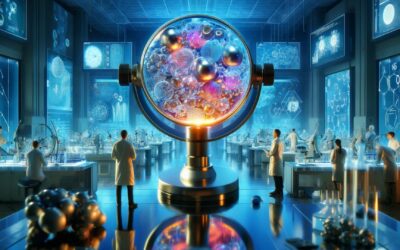Today, we embark on a journey to unravel the complex web of climate change, diving deep into the science behind this pressing global issue and exploring its profound implications for life on Earth. Join us as we navigate through the intricate mechanisms of climate change, examine its real-life impacts, and discover why understanding this phenomenon is crucial for safeguarding our planet’s future.
Understanding the Science of Climate Change
At its core, climate change refers to long-term shifts in global or regional climate patterns, primarily driven by human activities such as burning fossil fuels, deforestation, and industrial processes. The primary culprit behind climate change is the increase in greenhouse gas emissions, such as carbon dioxide (CO2), methane (CH4), and nitrous oxide (N2O), which trap heat in the Earth’s atmosphere and lead to rising temperatures—a phenomenon known as global warming.
Real-Life Example: Consider the melting of polar ice caps and glaciers, fueled by rising global temperatures. This not only contributes to sea-level rise but also disrupts ecosystems, threatens wildlife habitats, and poses risks to coastal communities around the world.
Implications of Climate Change
The impacts of climate change are vast and multifaceted, affecting everything from weather patterns and biodiversity to food security and human health. Extreme weather events, such as hurricanes, droughts, and wildfires, are becoming more frequent and severe due to climate change, wreaking havoc on communities and economies worldwide. Additionally, shifts in precipitation patterns and rising temperatures can lead to crop failures, water scarcity, and increased prevalence of vector-borne diseases, posing significant challenges to global food and public health systems.
Real-Life Example: In regions like sub-Saharan Africa, changing rainfall patterns and prolonged droughts have devastating consequences for agricultural productivity and food security, exacerbating poverty and contributing to humanitarian crises.
Taking Action: Why Climate Change Awareness Matters
Understanding the science behind climate change and its implications is crucial for empowering individuals, communities, and policymakers to take action. By raising awareness and promoting education about climate change, we can inspire collective efforts to reduce greenhouse gas emissions, transition to renewable energy sources, conserve natural resources, and adapt to the impacts of climate change.
Action Point: Make Sustainable Choices
Take a moment to reflect on how you can contribute to the fight against climate change in your daily life. Whether it’s reducing your carbon footprint by using public transportation, conserving energy at home, supporting sustainable businesses, or advocating for climate-friendly policies, every action counts towards building a more resilient and sustainable future for generations to come.
As we conclude our exploration of the science behind climate change and its implications, let us remember that we hold the power to shape the future of our planet. By deepening our understanding of climate change and taking meaningful action to address it, we can create a world where environmental stewardship, social equity, and economic prosperity go hand in hand. Together, let us embark on a journey towards a more sustainable and resilient future—one where our planet thrives, and all life flourishes.
Why Should You Care?
Understanding the science behind climate change and its implications is crucial for several reasons:
- Environmental Preservation: Climate change poses a significant threat to the environment, including biodiversity loss, habitat destruction, and ecosystem disruptions. Learning about climate change helps us comprehend these impacts and take action to mitigate them.
- Global Impact: Climate change is a global issue that affects every corner of the planet, regardless of geographical location or socioeconomic status. By understanding its science and implications, we can work together to address this collective challenge.
- Human Health and Well-being: Climate change exacerbates health risks such as heat-related illnesses, respiratory problems from air pollution, and the spread of infectious diseases. Educating ourselves about climate change enables us to protect human health and well-being.
- Economic Stability: Climate change can disrupt economies through damage to infrastructure, agricultural losses, increased healthcare costs, and displacement of populations. Learning about climate change helps us develop strategies to build resilience and ensure economic stability.
Key Takeaways
- Climate change is driven primarily by human activities, particularly the emission of greenhouse gases such as carbon dioxide, methane, and nitrous oxide.
- The impacts of climate change include rising global temperatures, changes in precipitation patterns, more frequent and severe extreme weather events, and disruptions to ecosystems and biodiversity.
- Understanding the science behind climate change empowers individuals and communities to take action to mitigate its impacts and adapt to changing environmental conditions.
- Climate change awareness is essential for promoting sustainable practices, transitioning to renewable energy sources, and advocating for policies that address the root causes of climate change.
Keywords and Definitions
- Climate change: Long-term shifts in global or regional climate patterns, primarily attributed to human activities such as burning fossil fuels and deforestation.
- Global warming: The increase in Earth’s average surface temperature due to human-induced greenhouse gas emissions.
- Greenhouse gases: Gases that trap heat in the Earth’s atmosphere, contributing to the greenhouse effect and global warming.
- Biodiversity: The variety of life forms on Earth, including plants, animals, and microorganisms, and the ecosystems they inhabit.
- Renewable energy: Energy derived from natural sources that are replenished on a human timescale, such as sunlight, wind, and water.
- Mitigation: Efforts to reduce or prevent the emission of greenhouse gases to mitigate the impacts of climate change.
- Adaptation: Actions taken to adjust to changing environmental conditions and minimize the vulnerability of communities and ecosystems to climate change.
- Sustainable practices: Practices that meet the needs of the present without compromising the ability of future generations to meet their own needs.
- Resilience: The ability of individuals, communities, and ecosystems to withstand and recover from the impacts of climate change and other environmental stressors.
- Environmental stewardship: The responsible use and conservation of natural resources to protect the environment and promote sustainability.
Frequently Asked Questions
What role do individuals play in addressing climate change?
Individuals can contribute to addressing climate change by adopting sustainable practices such as reducing energy consumption, minimizing waste, supporting renewable energy, and advocating for climate-friendly policies.
How does climate change impact biodiversity?
Climate change can lead to habitat loss, shifts in species distributions, extinction of vulnerable species, and disruptions to ecosystems, resulting in loss of biodiversity and ecosystem services.
What are some strategies for mitigating climate change?
Strategies for mitigating climate change include reducing greenhouse gas emissions through energy efficiency, transitioning to renewable energy sources, promoting sustainable land use practices, and implementing policies to limit emissions.
How can communities build resilience to climate change?
Communities can build resilience to climate change by investing in infrastructure improvements, implementing early warning systems for extreme weather events, enhancing natural defenses such as wetlands and mangroves, and fostering social cohesion and community engagement.
Myth Buster
Myth: Climate change is just a natural cycle, and human activities have little to no impact on it.
Reality: Scientific evidence overwhelmingly supports the conclusion that human activities, particularly the burning of fossil fuels and deforestation, are the primary drivers of recent climate change. While natural factors also influence climate, human-induced greenhouse gas emissions are causing unprecedented warming and disruption to the Earth’s climate system.
Let’s Talk: Discussion Questions
- How can we encourage greater public awareness and action on climate change in our communities?
- What are the ethical considerations involved in addressing climate change, particularly in terms of global equity and justice?
- How can businesses and industries play a role in mitigating climate change and promoting sustainability?
- Share your thoughts on the importance of individual actions versus systemic changes in addressing climate change, and how both can complement each other for greater impact.












0 Comments